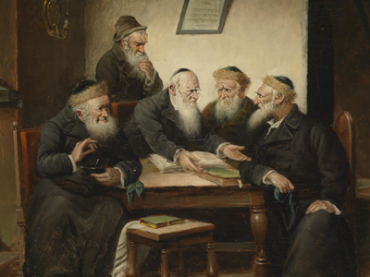Religion
Issues in Luke-Acts
Selected Essays
Edited by Sean A. Adams & Michael Pahl
Series: Gorgias Handbooks 26
ISBN: 978-1-60724-160-7
This volume provides an introduction and engagement with the major critical issues in the study of Luke-Acts. As the study of Acts has become, once again, one of the major areas of focus within New Testament scholarship, this collection of essays presents an orientation to the major issues of Luke-Acts study, while providing fresh scholarship by senior scholars. This holistic overture addresses fundamental questions such as authorship, dating, textual concerns, sources, speeches and literary form(s).
$82.00
The Homilies of Aphraates, The Persian Sage
Edited from Syriac Manuscripts of the Fifth and Sixth Centuries in the British Museum
Edited with an Introduction by William Wright
Series: Syriac Studies Library 38
ISBN: 978-1-60724-897-2
Wright’s edition of the homilies of the early Syriac father, Aphrahat, includes the text, critical apparatus, and notes on biblical citations, which are also indexed. The preface surveys Aphrahat’s life and deals with the manuscripts used.
$248.00
History of Martyrs in Palestine, by Eusebius, Bishop of Caesarea
Discovered in a Very Ancient Syriac Manuscript
Edited and Translated by William Cureton
Series: Syriac Studies Library 39
ISBN: 978-1-60724-898-9
This volume contains the Syriac version, with English translation and copious literary and historical notes, of Eusebius’s small book on the martyrs of Palestine, edited from a Syriac manuscript dated to 411.
$163.00
De Vita et Scriptis Sancti Jacobi, Batnarum Sarugi in Mesopotamia Episcopi
The Life and Works of Jacob of Sarug
Series: Syriac Studies Library 43
ISBN: 978-1-60724-902-3
This volume contains the dissertation of the Belgian scholar J. B. Abbeloos. Here he studies the life and works of Jacob of Sarug. The major section of the book deals with Jacob’s thought, as taken from his homilies.
$174.00
Job of Edessa's Book of Treasures
Encyclopaedia of Philosophical and Natural Sciences as taught in Baghdad A.D. 817
Edited and Translated by Alphonse Mingana
Series: Syriac Studies Library 46
ISBN: 978-1-60724-909-2
This volume presents, in Syriac and English, Job of Edessa’s encyclopedic work covering all manner of scientific topics. It will be of interest to readers interested in Aristotelianism and the intellectual climate of the Middle East around the ninth century.
$214.00
Syriac Fragments
Edited and Translated by Eduard Sachau
Series: Syriac Studies Library 48
ISBN: 978-1-60724-911-5
Sachau here publishes, with Latin translation, fragments of Syriac translations of the works of Theodore of Mopsuestia: commentaries on Genesis and the Minor Prophets, On the Incarnation, a Morning Hymn, and various short exegetical and theological fragments.
$134.00
Die evangelischen Fragen und Lösungen des Eusebius in jakobitischer Überlieferung und deren nestoria
Edited and Translated by Gerhard Beyer
Series: Analecta Gorgiana 460
ISBN: 978-1-60724-913-9
Gerhard Beyer surveys the evidence for the transmission of Eusebius’s work including questions and answers on the Gospels (peri diaphonias euangelion) within the Jacobite and the Nestorian Syriac traditions.
$49.00
Eine arabische Versio der zweiten Paraenesis des Johannes Chrysostomos an den Mönch Theodoros
Translation and Introduction by Willi Heffening
Series: Analecta Gorgiana 461
ISBN: 978-1-60724-914-6
In the present study, Willi Heffening presents a German translation of two sermons by Chrysostom on the subject of the monk Theodore preserved in Arabic. The text is also extant in Greek, but the Arabic version contains several unique features.
$37.00
Die äthiopische Anaphora des hl. Athanasius
Edited and Translated by Sebastian Euringer
Series: Analecta Gorgiana 462
ISBN: 978-1-60724-915-3
In the present article, Sebastian Euringer publishes the Ethiopic text of an anaphora attributed to Athanasius. Euringer also provides a German translation of the text as well as a critical apparatus with variant readings and critical notes.
$43.00
Die äthiopische Anaphora des hl. Epiphanius Bischofs der Insel Cypern
Edited and Translated by Sebastian Euringer
Series: Analecta Gorgiana 463
ISBN: 978-1-60724-916-0
In the present article, Sebastian Euringer publishes the Ethiopic text of an anaphora attributed to Ephphanius, the Bishop of Cyprus, and accompanies the text with a German translation and a textual apparatus including variant readings.
$41.00
Die Chronik des Eusebius in der syrischen Überlieferung
Series: Analecta Gorgiana 465
ISBN: 978-1-60724-918-4
In the present study, Paul Keseling surveys the use of the Chronicle of Eusebius in later Syriac historical works, such as the “Epitome of Syria” and the chronicles of Pseudo-Dionysius, Elias of Nisibis and Michael the Great.
$46.00
Ostsyrische Tisch- und Abendmahlsgebete
Edited and Translated by P. Maternus Wolff
Series: Analecta Gorgiana 466
ISBN: 978-1-60724-919-1
P. Maternus Wolff publishes here the text and German translation of twenty Eucharistic prayers from the Syraic tradition. Wolff also includes an apparatus containing critical notes and an introduction in which he discusses several unique features of these prayers.
$36.00
Dating Archaic Biblical Hebrew Poetry
A Critique of the Linguistic Arguments
ISBN: 978-1-61143-921-2
The dating of some Archaic Biblical Hebrew poems to the late second millennium – early first millennium BCE on the basis of a handful of linguistic forms in common with second millennium Ugaritic and Amarna-Canaanite texts is brought into question. This critique highlights the problems with the arguments and hypotheses presented in the literature, and concludes that there is no compelling evidence to support the use of linguistic data for dating purposes.
$158.00
Denkmäler der Entstehungsgeschichte des byzantinischen Ritus
Series: Analecta Gorgiana 467
ISBN: 978-1-60724-922-1
Anton Baumstark surveys key developments in the Byzantine liturgical rite and attempts to view these developments within the historical circumstances that likely affected or caused them.
$38.00
Die Marienharfe (Arganona Weddase)
Translation and Introduction by Sebastian Euringer
Series: Analecta Gorgiana 468
ISBN: 978-1-60724-923-8
Sebastian Euringer publishes here a German translation of the Ethiopic text of a grand poem dedicated to the Virgin Mary from the “monophysite” tradition. Euringer accompanies the translation with an introduction and critical notes.
$77.00
Die Enjanehirmen der berliner Handschrift Sach. 349
Series: Analecta Gorgiana 472
ISBN: 978-1-60724-927-6
Odilo Heiming publishes here the Syriac text and German translation of eighty brief Syriac hymns (enjane) that were not included in Jules Jeannin’s Mélodies liturgiques syriennes et chaldéennes.
$39.00
Byzantinische Troparia und Kontakia in Syro-Melchitischer Überlieferung
Series: Analecta Gorgiana 473
ISBN: 978-1-60724-928-3
Joseph Molitor traces the influence of Byzantine troparia and kontakia (hymns) in the Syriac Melkite tradition as evidenced by several Syriac manuscripts. Molitor provides a thorough introduction and publishes the Syriac text and German translation for the hymns he surveys.
$50.00
Judaic Logic
Edited by Andrew Schumann
Series: Judaism in Context 8
ISBN: 978-1-61719-194-7
Judaic reasoning is discussed from the standpoint of modern logic. Andrew Schumann defines Judaic logic, traces Aristotelian influence on developing Jewish studies in Judaic reasoning, and shows the non-Aristotelian core of fundamentals of Judaic logic. Further, Schumann proposes some modern approaches to understanding and formalizing Judaic reasoning, including Judaic semantics and (non-Aristotelian) syllogistics.
$182.00
Homélie de Narsès sur les trois Docteurs Nestoriens
Edited and Translated by Paulin Martin
Series: Analecta Gorgiana 475
ISBN: 978-1-60724-931-3
In this work, Martin offers the Syriac text, with an annotated French translation, of Narsai’s poem on the three doctors of the Church of the East: Diodore of Tarsus, Theodore of Mopsuestia, and Nestorius.
$57.00
Midrash and the Exegetical Mind
Proceedings of the 2008 and 2009 SBL Midrash Sessions
Edited by Lieve M. Teugels & Rivka Ulmer
Series: Judaism in Context 10
ISBN: 978-1-61143-683-9
Contained in this volume are the Proceedings of the Midrash session of the SBL's annual conferences in 2008 and 2009. This volume contains eight essays dealing with various aspects of rabbinic interpretation.
$172.00
Analecta Sacra Patrum Antenicaenorum ex Codicibus Orientalibus
Syriac and Armenian Fragments of Ante-Nicene Writings
Edited and Translated by Jean-Baptiste François Pitra; In Collaboration With Paulin Martin
Series: Syriac Studies Library 49
ISBN: 978-1-60724-932-0
This work contains a large number of Syriac and Armenian fragments from Ante-Nicene writings, with a translation into Latin and four indices: biblical passages, place names, persons, and subjects.
$220.00
Stilmittel bei Afrahat dem persischen Weisen
By Leo Haefeli
Series: Syriac Studies Library 51
ISBN: 978-1-60724-934-4
Drawing on the more progressed fields of Greek and Roman and Arabic rhetoric, Haefeli here presents Aphrahat’s style in terms of numerous stylistic categories. Naturally, the work is brimming with examples (in Syriac and German) from Aphrahat.
$138.00
Seine Person und sein Verständnis des Christentums
Ein Beitrag zur Geschichte der Kirche im Osten
By Paul Schwen
Series: Syriac Studies Library 52
ISBN: 978-1-60724-935-1
In this important study, still a standard resource on Aphrahat, Schwen deals with that writer’s life, works, and doctrine. It will be of certain use for students of Syriac literature and early Syriac Christianity.
$129.00
Aristoteles bei den Syrern vom V.-VIII. Jahrhundert
Series: Syriac Studies Library 53
ISBN: 978-1-60724-936-8
In this volume, Baumstark deals with the transmission of Aristotelian philosophy into Syriac and Arabic. Syriac texts with German translations are included, alongside a detailed study of their textual interrelationships.
$172.00
The Syriac Version of Cyril of Alexandria's Commentary on Luke
Edited with an Introduction by Robert Payne Smith
Series: Syriac Studies Library 56
ISBN: 978-1-60724-939-9
Payne Smith here gives an edition, prefaced by a helpful introduction (in Latin), of the Syriac translation of Cyril of Alexandria’s interpretation of Luke’s Gospel, which is incomplete in Greek.
$207.00
Filter by
Filter by price
Filter by manufacturer



























